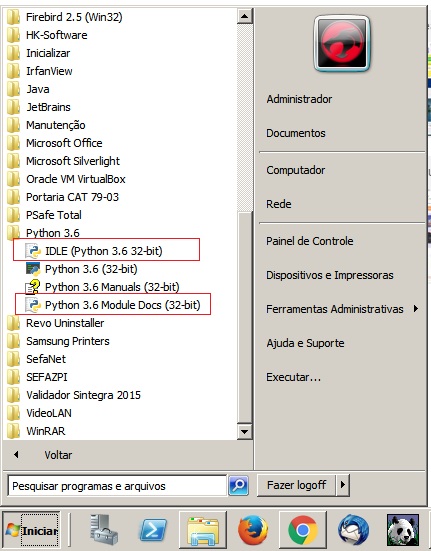- In the stock Mac OS X python installation, idle is found in /usr/bin, which is not (easily) accessible from Finder and not indexed by Spotlight. The quickest option is to open the Terminal utility and type 'idle' at the prompt.
- Download IdleX - IDLE Extensions for Python for free. IDLE Extensions. A collection of extensions for Python's IDLE, the Python IDE built with the tkinter GUI toolkit.
- If you are using Python from a python.org 64-bit/32-bit Python installer for Mac OS X 10.6 and later, you should only use IDLE or tkinter with an updated third-party Tcl/Tk 8.5, like ActiveTcl 8.5 installed.
Tkinter Python Download
It’s time for the rubber to hit the road! However, before I can start writing code I need the underlying language installed and a tool to use it. In summary, a bit of set up is required. Some great guidance is available on the net. In particular, two blogs proved useful:
Installing Pygame for Python 3 on Mac and Linux 11 4. Hen the Pygame installation completes, open a file window W and go to Applications4 Programming4IDLE (using Python-3.4) to open the IDLE Python shell. Test your installation of Pygame for Python 3 on Linux by typing import pygame and pressing enter at the prompt, as shown in Figure 13. Running OSX 10.9.1 on a Mac mini. I used Python 2.7.6 Mac OS X 64-bit/32-bit x86-64/i386 Installer, downloaded from to.
1. PyLadies outlines the steps required to install Python in comprehensive and accessible way. It is targeted towards beginners like myself and takes a future proofing approach.
2. The Hitchhiker’s Guide to Python provides a very focussed rundown of the set up required. It’s also an easily accessible read with a similar approach to PyLadies.
Idle Python Download Mac
The approach I ran with to get set up included the following steps:
- Install Xcode
- Install Homebrew
- Install Python
- Open IDLE
Install Xcode
Xcode is the Apple integrated development environment (IDE). It is used for building iOS and Mac applications and is universally recommended as a prerequisite to get set up for Python development on mac. Xcode is downloaded from the Mac App Store. You can initiate this download from here: https://developer.apple.com/xcode/downloads/
Once Xcode has installed the next thing to do is install Command Line Tools. The easiest way to do this is to once again download it from the Apple website. To do this, you will need to enter your Apple ID and password. Make sure you choose the latest release date possible that isn’t in beta.
Install Homebrew
Homebrew is referred to as a ‘package manager’. It makes installations easy on mac and ensures they get put in the right place. My installation of Python and supporting tools was made ridiculously easy through Homebrew.
To install Homebrew, open up the Terminal application. You can find Terminal by clicking on the Launchpad icon in the dock and typing Terminal. Once the application appears it’s a good idea to drag it down to the dock for easy future access.
In the Terminal, paste the following command and press enter.
The terminal will prompt you for your password at several points. This is the password you enter when you are asked to provide your Apple ID. Terminal will tell you when the installation is complete with an >Installation successful! statement.
Install Python
I used the Homebrew package manager to install Python. To do this, I entered the following command into Terminal:

Homebrew took care of everything and the installation process was super easy and only took around a minute. Many blog posts also include two extra steps, install Pip and install Virtualenv. These are now included as part of the python installation executed above. Easy. Something to be aware of is that mac OS X includes by default a version of Python pre-installed. This is typically Python 2.7 which is still supported but is now a legacy version. We don’t want to use this because it comes installed to support other software applications. Messing about with it could result in breaking a dependency that is hard to fix, so lets avoid…
Open IDLE
Tkinter Online Ide
IDLE is the development environment (IDE) that arrives by default with the Python install. I am going to write Python code using IDLE going forward. To open IDLE, click on Launchpad in the mac dock. Within Launchpad, type “IDLE” and this will launch the IDLE IDE (Integrated Development Environment). And there we go, a working development environment!
Online Tkinter Gui Builder
Finishing up
I’m now ready to get stuck in and start learning Python. I have everything that I need at a basic level and then next step is to actually write some code. That will be my next blog post arriving in a couple of days.
Now, its my daughter’s 4th birthday and time start prepping her favourite dinner of fish and chips followed by apple pie and custard. Sounds good to me.
Tkinter Download Mac
Python 3 Notes[ HOME | LING 1330/2330 ] | Installing Python 3 on a Mac<< Previous Note Next Note >> |
Steps
Should I Re-install?If you already have a working version of Python on your laptop, you might be wondering if it is OK to keep it or you should re-install. The run-down:
|
